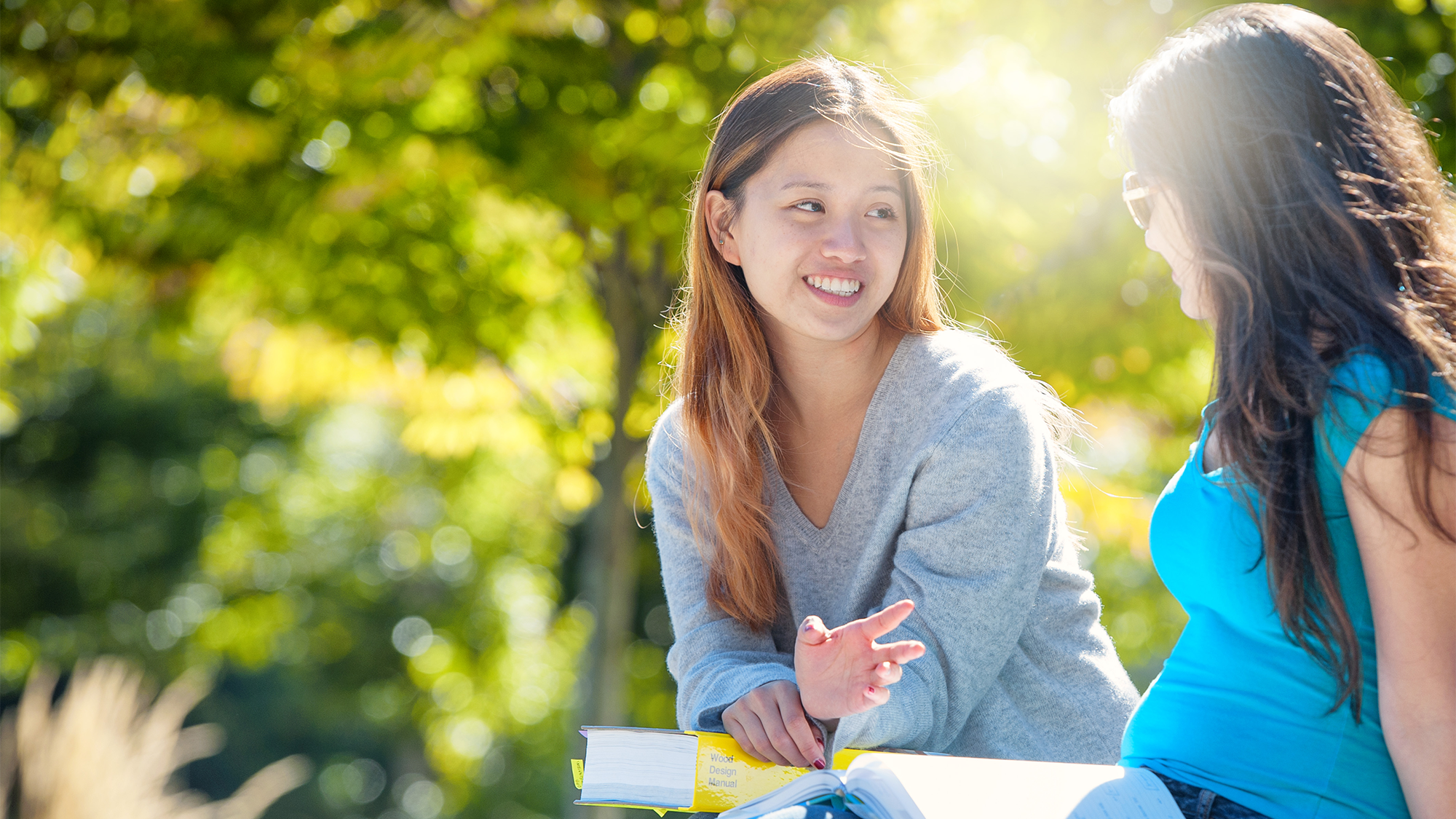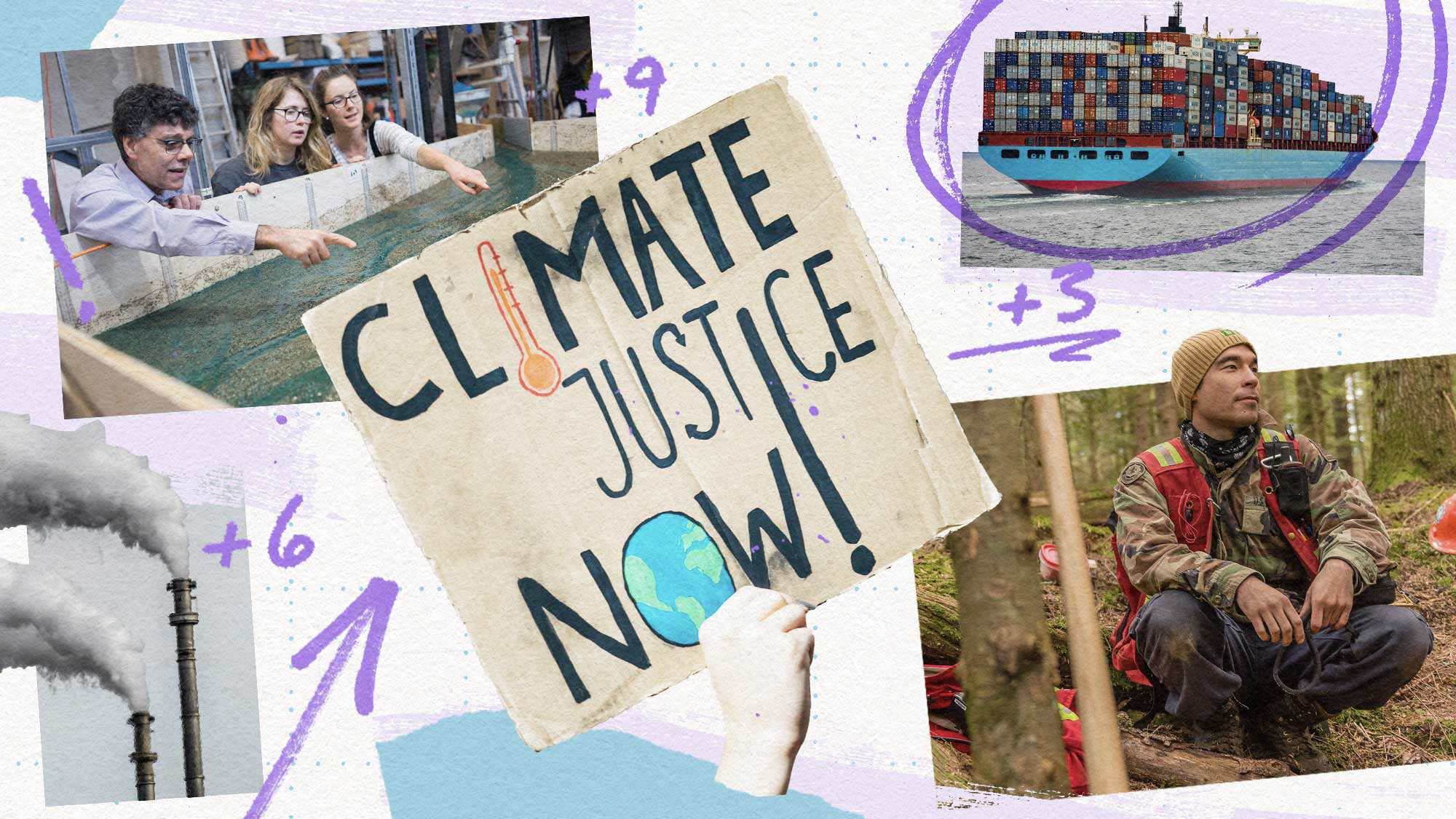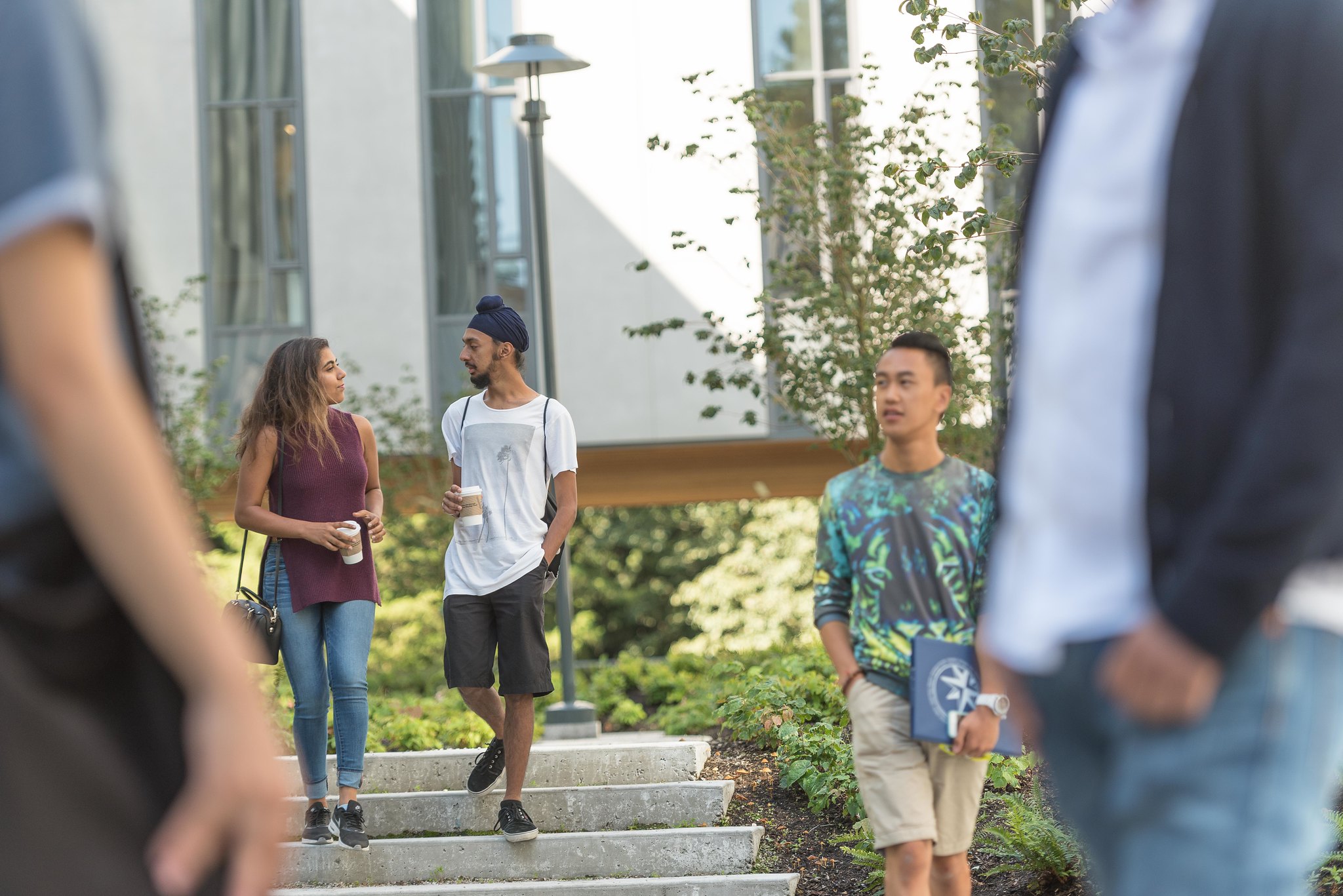Faculty, students and alumni across the UBC Faculty of Arts are confronting the global refugee crisis in a myriad of ways, whether by working directly with migrants, reporting on the refugee crisis from the field or offering policy advice on refugee resettlement programs in Canada. We asked four scholars from Creative Writing, Geography, Journalism and Sociology to weigh in on what role we can play in confronting the refugee crisis and in shaping a more equitable global refugee resettlement system.
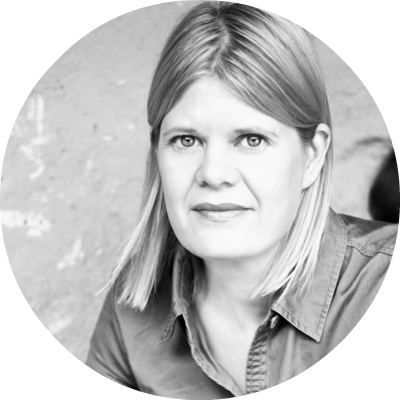

Deborah Campbell is an award-winning foreign correspondent who teaches in UBC’s Creative Writing Program. Her latest book chronicles the struggles of Iraqi refugees in Syria after the fall of Baghdad.
Deborah Campbell, Lecturer in Creative Writing
“Strong community support from the host country is essential. This can involve simple friendship, or financial help and assistance finding work. What is important is to cultivate a sense of belonging.”
I spent several years following refugees from their initial havens through eventual resettlement. In my observation most refugees pass through three distinct phases upon arriving in a new place. In the first phase, they are flooded with relief and full of expectation. They are alive, safe, no longer on the run. In this phase everything is viewed through a rosy lens and to their old life they say good riddance. The sense of expectation, however, may be misplaced. Some of this is undoubtedly due to exaggerated perceptions of life in developed countries. (Via satellite and internet, they have been exposed to visions of affluence that are often pure Hollywood fantasy.)
The second phase emerges as unforeseen hardships arise. In most developed countries, including Canada, the culture is far more individualistic than that of communal societies, where people typically live in close proximity to relations and friends. In losing community, refugees suffer not only isolation but the loss of connections that help people make their way. (Most jobs come through someone we know, for example.) They also lose social status. A dentist who is now delivering pizzas must face the prospect of never recovering the same sense of identity and standing. At this point the refugee begins to grieve. There is longing for old friends and old ways of life, now enhanced by the glow of nostalgia.
In the third phase the refugee begins a process of adaptation and acceptance. A new community forms. Language skills improve. The new country begins to feel like home. These three phases take about five years—longer if adaptation is disrupted by isolation, poverty, or untreated mental health issues due to past trauma. To pass through these phases successfully, strong community support from the host country is essential. This can involve simple friendship, or financial help and assistance finding work. What is important is to cultivate a sense of belonging so the transplant flourishes.
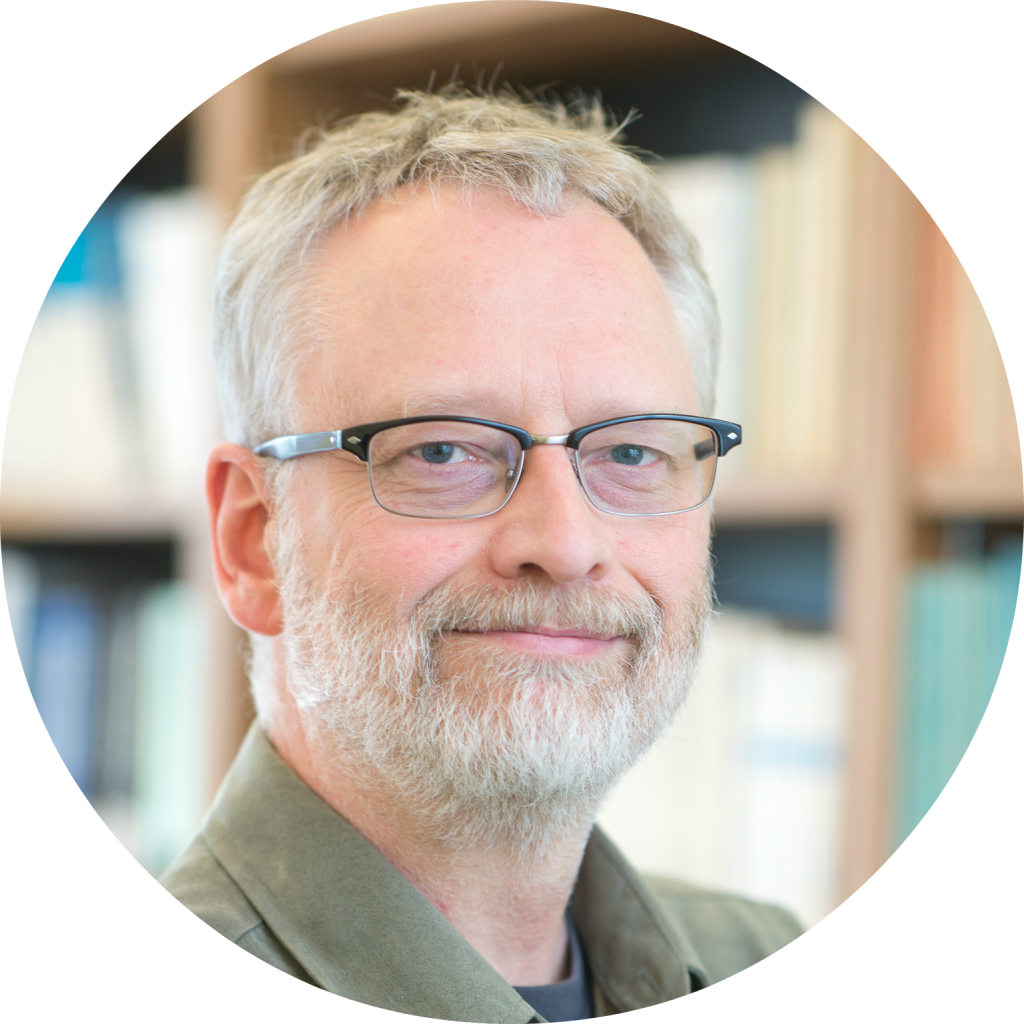

Dan Hiebert specializes in immigration policy and the integration of newcomers into Canadian housing and labour markets.
Dan Hiebert, Professor of Geography
“Presenting our work in ways that only speak to those of us in a ‘pro-refugee bubble’, in my opinion, does little of value (other than stroking the egos of the already-converted).”
More than ever, 2016 has taught us that public discourse has become dominated by ‘fact-free’ statements – this was certainly the case in the seemingly endless and always depressing US electoral process. At the risk of being completely out of fashion, I suggest that one of the most powerful roles scholars can play is to help shape public debate on refugees through careful research and providing evidence on what’s happening. It is critical that this research be accessible to the general public.
One opinion survey after another in Canada has shown that Canadians are skeptical, at best, about refugees, and dismissive at worst. The outright hostility that we see toward refugees in many countries could arise here too. Presenting our work in ways that only speak to those of us in a ‘pro-refugee bubble’, in my opinion, does little of value (other than stroking the egos of the already-converted). What do we need to know more about? Here are the top items on my wish list:
- What does the integration process look like for refugees in Canada, in the short-, medium-, and longer terms? If public opinion is motivated by a sense that refugees consume public resources disproportionately, for example, we should be able to speak to this issue. It is clear that public resources are disproportionately used by refugees in the short run, but what about 10 or 20 years down the road? It is quite possible (but needs verification) that this use is compensated by tax payments over a long period of time in Canada.
- What happens to the children of refugees? Speaking as a child of a refugee mother, I would say that very good things can happen for this group! More seriously, we should have evidence-based stories to tell about the second generation of refugees who came to Canada. My sense is that, in general, these stories will be very positive.
- Who bears the real costs of refugee admission to Canada? This is a really tough question and we should not shy away from it. For the most part, those costs are borne by Canada’s low-income population. The most obvious example would be the added demand on affordable housing as refugee households come to places (like Vancouver) where the supply of that type of housing is extremely meager. The challenging but vital message that this research would send is: when Canada admits refugees, it must also make key additional investments to improve the lives of Canadians experiencing poverty.


Peter W. Klein is an Emmy Award-winning journalist and associate professor at the Graduate School of Journalism. In 2008 he launched the International Reporting Program which takes students overseas to produce major works of global journalism.
Peter W. Klein, Director of the UBC Global Reporting Centre
“We must find new, creative ways of mobilizing the knowledge we spend so much time gathering, or our work will be relegated to history books – to be read by elite scholars looking back on a shameful period of isolationism that left millions of innocent refugees in crisis.”
A recent Pew Research Center poll found that more than half of all Europeans believe that “refugees will likely increase the likelihood of terrorism,” but the facts do not seem to justify this fear. While it is true that several recent Islamic-extremist attacks have hit countries in Europe, the majority of those attacks were carried out by so-called “home grown” terrorists, native-born citizens who became radicalized by material on the internet.
Take the two incidents that happened on December 19, 2016. In Ankara, as a gunman fired shots that killed the Russian ambassador to Turkey, he shouted “Don’t forget Aleppo, don’t forget Syria!” But the assassin was not a Syrian refugee – he was an off-duty Turkish police officer. That same day, in Berlin, a terrorist plowed a truck into a crowded Christmas market, killing 12 people. Police immediately apprehended a 23-year-old Pakistani asylum seeker who had entered Germany under Chancellor Angela Merkel’s “open door” refugee policy. Within a day, the man was released, but Merkel’s opponents quickly capitalized on the event, even before the facts of the attack were known. Frauke Petry, chairwoman of Alternative for Deutscheland (AfD) party, said, “We cannot go on denying there is a link between Merkel’s migration policy and these attacks.” Many German pundits are already predicting that this attack could be the blow necessary to unseat Merkel next year.
The recent US election underscored the hazards of low information voters, as political influencers peddled wild fictions as fact, packaged to look like news stories, and spread it like epidemics throughout social media. The battle against fake news is not a numbers game. There are far more scholars and journalists reporting legitimate information, but the high-pitched hum of false news seems to be cutting through the noise of truths in the ether.
Both journalists and scholars need to do a better job getting facts into the hands and heads of voters, who are making history-changing decisions about the global refugee crisis. We must find new, creative ways of mobilizing the knowledge we spend so much time gathering, or our work will be relegated to history books – to be read by elite scholars looking back on a shameful period of isolationism that left millions of innocent refugees in crisis.
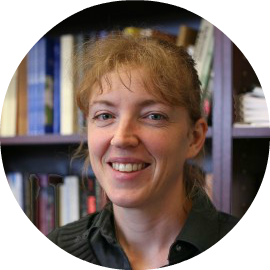

Rima Wilkes specializes in attitudes toward immigration and collective action by Indigenous nations.
Rima Wilkes, Professor of Sociology
“First Nations and Indigenous people should be consulted on immigration policy.”
- Reach out – you might benefit
I think it can be as simple as day-to-day things like reaching out and inviting people to your home. Once you have a personal experience, you’re more sympathetic to what others might be going through. Something I’ve noticed in Vancouver is that many established Canadians don’t want their kids going to school with ESL students. Parents need to consider that their kid might learn something from going to school with kids who have a different background.
- Don’t be smug about Canadian generosity
Canadians should be careful not to be too smug about the story of Canadian generosity. It’s part of our identity that we’re “good people” – we’re kind and generous, we’re better than the Americans. I don’t want to be too cynical about it – it’s better than fear mongering. But the downsides are it makes us complacent and can lead us to think we’ve done our part and don’t need to do anything further. We took in 25,000 refugees but other countries have taken in hundreds of thousands. We need to think carefully about what the bar is.
- First Nations and Indigenous People need to be consulted
There is no consultation with First Nations on immigration policy. We’ve reached a point, at least in the immigration literature, where the consensus is simply: “immigration is good and if you’re against it, you’re a racist”. But the story becomes more complicated when you consider the First Nations. First Nations have to be consulted on resource issues, why not immigration? Canada is bringing people in and saying “look how generous we are, come in and settle on someone else’s land.” Today’s refugees are tomorrow’s settlers. If you go back 100 years, the native to non-native population would have been more equitable in terms of relative proportions, but the Canadian settler side grew its population through immigration. The Indian Act makes it so First Nations can’t grow their population through immigration. Then the Canadian side turned around and said “you’re only this many people, you’re not a real nation.” First Nations and Indigenous people should, at the very least, be consulted on immigration policy.
Related: Liu Institute for Global Issues, Reflections on Breaking the Cycle Symposium and The Consul, November 21, 2016
